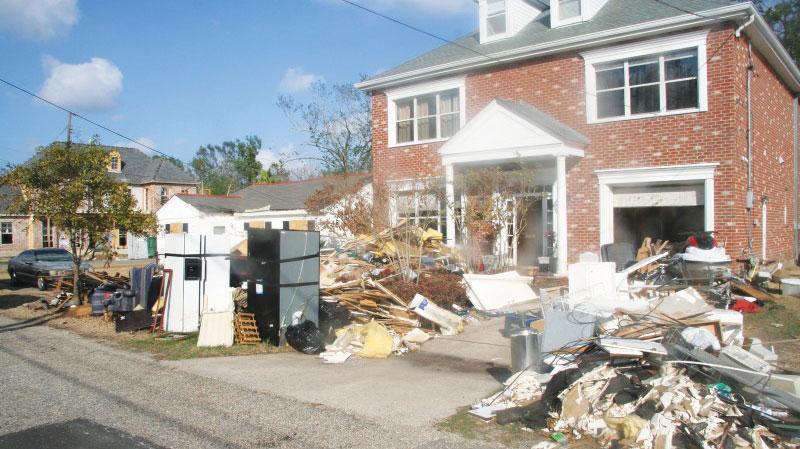Aug. 29 marked the five-year anniversary of Hurricane Katrina’s landfall at New Orleans. Taylor Miller, a senior majoring in management and a New Orleans native, was living in the city as the storm made its march towards land.
Crimson White: Where were you living when Katrina hit? Where did you go to school? How old were you?
Taylor Miller: I was living in NOLA before the hurricane hit. I was a junior in high school, 16 years old, at Louise S. McGehee.
CW: Did you evacuate the city? If so, where to and for how long?
TM: I evacuated on August 28th and it took me 17 hours to get to Destin, FL, a normal 4-hour drive. We arrived at the hotel right as Katrina was making landfall and turned on the TV to see the coverage. It was disarming to see video of places near where my friends, who didn’t evacuate, lived and not being able to get in touch with them because the phone lines were constantly jammed.
CW: What’s cleanup been like for you and your family?
TM: Cleanup has been an entire process for most New Orleanians. My school participated in Habitat for Humanity before the storm, but after the storm our participation rate skyrocketed. We take such pride in our city and were so upset that some members of the nation felt it was an act of God to destroy our “sin city,” so we really took it upon ourselves to put all the pieces back together.
My family was fortunate enough to not have our entire house destroyed. [There were] just a few feet of water. We were able to move back in that February and just needed a FEMA trailer to use for the kitchen. They delivered one in February but forgot to leave the keys so we had to wait until March when they finally brought them back.
My high school was the very first Pre-K to 12th grade school to reopen and I was there on the first day back, Oct. 26, 2005. It was weird living in NOLA again. It was a dead city for the most part. Only like one convenience store was open and most restaurants were still closed.
CW: You’re in school at Alabama. Did the storm and its aftermath play a role in your choice to go here?
TM: The storm had no role in my choice to come to Alabama. That was mostly football and distance.
CW: How did you feel about the local and federal governments’ and FEMA’s responses to the storm?
TM: In general I feel like the governments, both local and federal, could never have been prepared for the aftermath of the hurricane. They had a delayed response but did what they could. They were overwhelmed and under lots of pressure. FEMA set back our return for home by months but we got by. It was the greatest natural disaster the nation has seen, and I can’t really think of any way to properly prepare for the unknown so I don’t begrudge anyone really.
CW: Five years have passed. Is NOLA better than you thought it’d be? Worse? Stronger? Weaker?
TM: Five years later and our city is strong. New Orleanians across the nation have more pride in their hometown than ever. The fleur-de-lis is on steroids, basically. I feel like we, as a city, pulled ourselves up by the bootstraps, if you will. We know how great of a place it is, we know what we have to offer every individual: we provide an escape from the normal day-to-day life. There are still many places that are yet to be rebuilt, places you can drive by and still see the markings on the front porch from where the National Guard went inside to look for any survivors.
It’s been a long process and we’re back, bigger than ever, but still have places that need fixing.
I’m glad that it seems most people, at least now, support the re-building process and know that New Orleans is a place anyone can call home.









